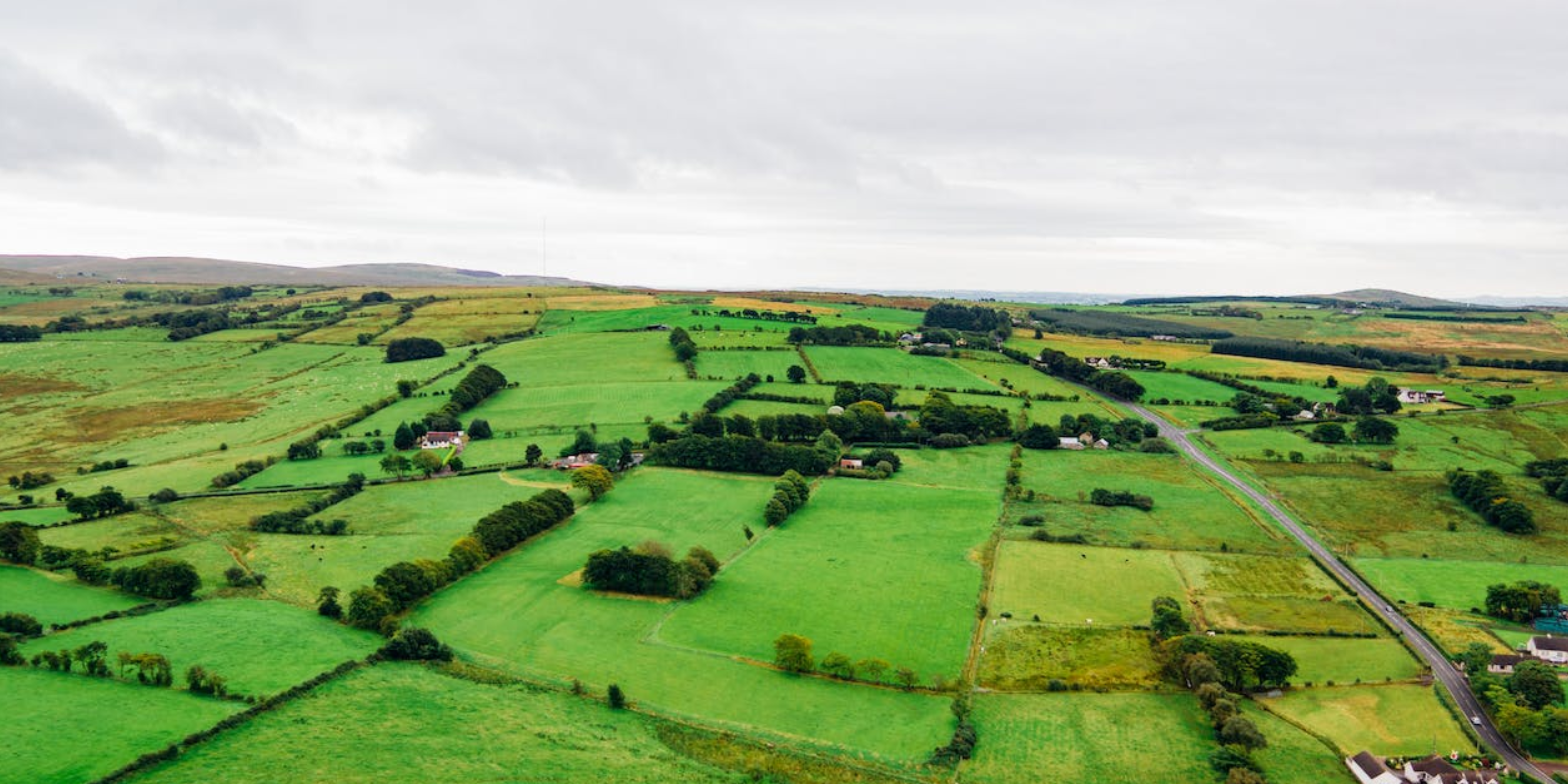Undeveloped Land: 10 Factors to Consider in Selling Raw Land

What Are the Top 10 Factors to Consider When Selling Undeveloped Land?
Selling undeveloped land requires careful consideration of various factors such as location, regulations, market trends, access, utilities, development potential, permits, marketing strategy, and financial considerations. Each factor can impact the price, timing, and success of the sale. By working with experienced professionals and evaluating these factors, landowners can maximize the value of their land and achieve a successful sale.
Undeveloped Land
Undeveloped land is a piece of real estate that has not been improved or developed in any way and therefore lacks any permanent structures or buildings. This type of land is in its natural state and often lacks any infrastructure or utilities, such as water, electricity, or gas lines. Undeveloped land can include a wide range of properties, from remote and rural tracts of wilderness to urban lots that have not yet been developed. While undeveloped land may not have any structures or buildings, it can still hold value for a variety of purposes, such as recreational use, conservation efforts, agriculture, or future development.
Undeveloped land is often viewed as a valuable investment since it has limited availability and increasing demand, which leads to an appreciation in value. However, obtaining financing for undeveloped land can still be challenging despite its appreciation potential. Therefore, it is important to carefully consider the advantages and disadvantages of purchasing undeveloped land, the expenses involved in developing it, and how to finance the acquisition before investing.

Factors to Consider When Selling Undeveloped Land
1. The Location of Undeveloped Land
One of the most important factors to consider when selling is the location. The proximity to urban centers and access to roads, utilities, water, and other amenities can greatly impact the value of the property. Properties located in desirable areas with convenient access to amenities and infrastructure are typically more valuable than those in remote or less accessible locations. Additionally, proximity to highways, airports, and public transportation can increase the potential uses of the undeveloped land and make it more attractive to buyers. When evaluating the location of the land, it’s important to consider both the current and future development plans in the surrounding area. By understanding the potential for growth and development, landowners can accurately price their property and target potential buyers who are looking for specific location-related features.
2. Zoning and Land Use Regulations for Undeveloped Land
Zoning and land use regulations play a crucial role in the sale of undeveloped land. Zoning laws and building codes can significantly impact a property’s value and potential uses. Therefore, it’s essential to understand the zoning and regulations in the area before listing the property. Zoning laws dictate what can be built on the undeveloped land, its size, and its use. Building codes dictate the minimum standards for construction and safety. Landowners must comply with these regulations, and failure to do so can result in fines or legal action. By working with professionals who understand the regulations, landowners can maximize their proper
3. Environmental Factors
Environmental factors play a crucial role in determining the value of land. Soil quality, drainage, water quality, and natural disasters can all impact the land’s value. For instance, if the soil is contaminated, it could affect the land’s potential use and, therefore, its value. Similarly, poor drainage could make the undeveloped land unsuitable for certain activities, like farming. Natural disasters such as floods, hurricanes, or earthquakes can also have a significant impact on land value, especially if the area is prone to such events. It’s essential to disclose any environmental issues to potential buyers to avoid legal and financial repercussions.
4. Market Trends
Real estate market trends are constantly changing, and it is important to keep an eye on them to make informed decisions. Here are some key factors to consider when analyzing the real estate market trends in a particular area:
- Supply and demand: Look at the number of properties currently on the market in the area and how long they have been listed for sale. A high number of properties and a long time on the market could indicate an oversupply of properties and a weaker market. Conversely, a low number of properties and a short time on the market could indicate a strong demand for properties in the area.
- Average price per acre: The average price per acre can provide insight into the overall health of the market. Look at the historical trends of the average price per acre to see if it is increasing or decreasing over time. If the average price per acre is increasing, it may indicate a strong demand for properties in the area.
- Recent sales of similar properties: Analyzing recent sales of similar properties can give you an idea of what buyers are willing to pay for properties in the area. Look at the sale price, the time it took for the property to sell, and any features or characteristics that may have contributed to the sale.

5. Access
Access is a key factor to consider when evaluating the value of a property. The quality of the roads leading to the property and its proximity to major highways or transportation hubs can have a significant impact on its value. Any easements or right-of-way issues should also be taken into account, as they can affect the property’s use and value. A property with good access is generally more attractive to potential buyers or tenants and can command a higher price or rental rate. On the other hand, a property with poor access may be less desirable and may require significant investment to improve its value.
6. Utilities
Utilities play a significant role in determining the value of undeveloped land. Properties that have access to utilities such as electricity, gas, water, and sewer are more desirable and can command a higher price. On the other hand, if the property lacks these utilities, it may be less valuable, and the cost of bringing in these utilities should be considered. Additionally, the quality and reliability of these utilities can also impact the value of the property. For example, properties in areas with frequent power outages may be less valuable than those with stable electricity access.
7. Development Potential
The development potential of a piece of land is another factor that can impact its value. The potential uses for the land, such as residential, commercial, industrial, agricultural, or recreational, can attract different types of buyers, each with their own set of requirements and preferences. For example, a plot of land with the potential for residential development may be more valuable to a developer looking to build housing than to a farmer looking to expand their agricultural operations. Similarly, a plot of undeveloped land with commercial potential may be more valuable to a business owner looking to set up shop than to a recreational enthusiast looking to build a personal retreat.
8. Permits and entitlements
Permits and entitlements are an important consideration when evaluating the value of undeveloped land. Depending on the intended use of the property, there may be specific permits or entitlements required, such as zoning changes, building permits, or environmental permits. It is crucial to understand the requirements for any necessary permits or entitlements and whether they have been obtained. Failure to obtain the necessary permits can result in costly fines or delays in development, which can significantly impact the value of the land. Therefore, it is always advisable to consult with relevant authorities to ensure that all necessary permits and entitlements are in place before proceeding with any land transaction.
9. Marketing Strategy
Marketing a property effectively can increase its visibility and attract potential buyers. One effective strategy is to work with a real estate agent who has experience in the local market and can leverage their network to promote the property to interested buyers. Alternatively, marketing the property online through social media, real estate websites, and targeted online advertising can also reach a broader audience. Creating visually appealing and informative marketing materials such as virtual tours, professional photographs, and detailed property descriptions can also help generate interest and ultimately result in a successful sale.
10. Financial Considerations
Absolutely, financial considerations are crucial when evaluating the value of land. Taxes, closing costs, and any outstanding liens or mortgages can significantly impact the final price of the property. It is important to have a clear understanding of these costs and how they will affect the transaction. Additionally, it is important to consider the potential return on investment for the undeveloped land, taking into account factors such as potential appreciation and rental income. A thorough financial analysis can help you make an informed decision and ensure that you are getting the best possible value for your investment.
